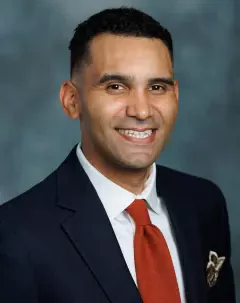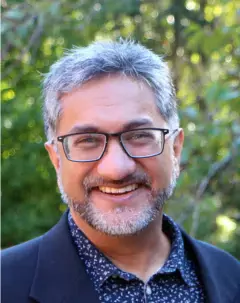Our faculty
UVic Law is known for teaching and research excellence. Our faculty members work collaboratively with students, communities and academic colleagues from many disciplines both locally and around the world.
Dean & associate deans

Dean of Law
Accepting graduate students
Office: FR 102d lawdean@uvic.ca 250-721-8147
- Area(s) of expertise:
- Income security, disability and the law, debtor & creditor relations, torts, pensions, consumer law

Associate Dean, Administration and Research, and Associate Professor
- Area(s) of expertise:
- Constitutional law, theories of judgement, democracy and legality, multijuralism, law and humanities

Associate Dean Indigenous & Director, JD/JID Program, and Associate Professor
Accepting graduate students
- Area(s) of expertise:
- Torts, transsystemic torts, Coast Salish law and languages, legal research and writing and field schools

Associate Dean, Academic and Student Relations and Professor
Office: Fraser 105 lawassoc@uvic.ca
- Area(s) of expertise:
- International arbitration, international investment law, international economic law
Faculty members

Professor
- Area(s) of expertise:
- Torts, remedies, insurance, critical race and feminist theories

Assistant Professor
Accepting graduate students
fayotunde@uvic.ca 250-472-4078
- Area(s) of expertise:
- Business and human rights (transnational), human rights law, labour and employment law, sustainable natural resources development

Status: On leave
Professor
- Area(s) of expertise:
- Constitutional law, Indigenous law, natural resources law, comparative constitutionalism, Aboriginal and Treaty Rights, and law and religion

Associate Professor
Accepting graduate students
- Area(s) of expertise:
- Taxation law, Indigenous taxation, Indigenous corporate structures, legal theories engaging postcolonial and critical race theory

Professor
Accepting graduate students
Office: FRA 234 gcalder@uvic.ca 250-472-5127
- Area(s) of expertise:
- Constitutional law and theories, family law, feminist legal theories, critical legal and arts-based pedagogies, legal education, performance theories, law and theatre, queering law, law and emotions.

Professor
Accepting graduate students
Office: FR 220 kmchan@uvic.ca
- Area(s) of expertise:
- Not-for-profit law, law and religion, constitutional law

Professor
Accepting graduate students
- Area(s) of expertise:
- Environmental law, water law, water governance, municipal and land use law, natural resources, regulatory design

Professor and Lansdowne Chair
Accepting graduate students
- Area(s) of expertise:
- Animal law and ethics, feminist jurisprudence, administrative law, rule of law, socio-legal analysis

Professor
Accepting graduate students
Office: FR 224 mgillen@uvic.ca 250-721-8169
- Area(s) of expertise:
- Securities regulation, business associations, trusts, tax, competition law, and historical foundations of the common law

Associate Professor
Accepting graduate students
Office: FR 119 ahanna@uvic.ca 250-472-5247
- Area(s) of expertise:
- Indigenous legal orders, contract law, Aboriginal law, Indigenous governance and jurisdiction, Indigenous rights and title.

Director of the Law Centre and Assistant Teaching Professor
cheslinga@uvic.ca 250-721-8604
- Area(s) of expertise:
- Clinical legal education, poverty law, human rights law, residential tenancy law, employment law, administrative law

Professor
Accepting graduate students
- Area(s) of expertise:
- Intellectual property, cultural property, technology, telecommunications, private international law (conflict of laws), and Asia-Pacific issues.

Professor
- Area(s) of expertise:
- Business associations, legal theory, law and film, criminal law, law and popular culture, Indigenous legal research, legal pedagogy, legal method, gender.

Associate Professor
Accepting graduate students
- Area(s) of expertise:
- Race and criminal law, police powers, international criminal law, Third World approaches to international law, legal pluralism, postcolonial theory, critical race theory, citizenship

Professor, David and Dorothy Lam Chair in Law and Public Policy
Office: Room 212, Fraser Building rlapper@uvic.ca 604-816-9117
- Area(s) of expertise:
- Public law, access to justice, aboriginal law, alternate dispute resolution, professional regulation.

Professor & Director, Access to Justice Centre for Excellence
Accepting graduate students
- Area(s) of expertise:
- Criminal law, evidence law, access to justice

Assistant Professor
Accepting graduate students
- Area(s) of expertise:
- Indigenous legal orders, Cree law and governance, constitutional law, ecological governance and Indigenous law, treaties and Indigenous law.


Associate Professor
Accepting graduate students
geoffreyloomer@uvic.ca 250-721-8161
- Area(s) of expertise:
- Tax law, tax policy, individual income tax, corporate income tax, international tax

Assistant Professor
- Area(s) of expertise:
- Contracts, remedies, blockchain and crypto commerce, business and company law, consumer protection, and access to justice.

Professor
Accepting graduate students
Office: Clearihue B328 cmacleod@uvic.ca 250-721-7521
- Area(s) of expertise:
- Jurisprudence, children's rights, moral and political philosophy, theories of justice

Professor
Accepting graduate students
davidmilward@uvic.ca 250-721-8154
- Area(s) of expertise:
- Criminal law, evidence, Indigenous law, Indigenous justice

Professor
Accepting graduate students
Office: FRA 264 napoleon@uvic.ca 250-721-8172
- Area(s) of expertise:
- Indigenous legal traditions and methodologies (e.g., land, water, governance and democracy, gender and human rights, and families), Indigenous legal theories, Indigenous feminisms, legal pluralism, Indigenous democracies, and Indigenous intellectual property. In the JD/JID, she teaches common law property combined with Gitxsan land and property.

Associate Professor, President’s Chair in Law and Indigeneity in a Global Context
Accepting graduate students
- Area(s) of expertise:
- Legal pluralism, legal history, legal ethics, Indigeneity, international human rights law, research methodology


Professor of Law, Chair in Asia-Pacific Legal Relations
Accepting graduate students
Office: FRA 158A ramraj@uvic.ca 250-721-7020
- Area(s) of expertise:
- Comparative constitutional law, comparative administrative law, transnational law, law and society in Southeast Asia, emergency powers, law and complexity

Professor
Accepting graduate students
Office: FRA 244 sararamshaw@uvic.ca 250-721-8165
- Area(s) of expertise:
- Arts-based approaches to law; law and the humanities; feminist/intersectional legal theory; improvisation and the law; music and the law; critical legal studies; critical contract law; and poststructural legal theory.

Associate Teaching Professor
Office: Room 216 trichard@uvic.ca 250-721-8185
- Area(s) of expertise:
- Legal skills, administrative law, social welfare law, children and the law

Professor
Accepting graduate students
- Area(s) of expertise:
- Environmental and climate law, criminal law and procedure, joint governance and decision-making (Indigenous-Crown), forestry law, contaminated sites

Assistant Professor
Accepting graduate students
maryannev@uvic.ca 250-472-4260
- Area(s) of expertise:
- Canadian legal history, Asian Canadian history, critical race studies

Associate Professor
Accepting graduate students
- Area(s) of expertise:
- Property, natural resources, housing and homelessness, Aboriginal law, Indigenous rights
Emeritus
- Jamie Cassels, KC
- Don Casswell
- M Cheryl Crane
- Gerry Ferguson
- Hamar Foster, KC
- Glenn Gallins, KC
- Donald Galloway
- Donna Greschner
- Kim Hart
- Hester A Lessard
- Sandra K McCallum
- Ted McDorman
- John McLaren
- R Michael M'Gonigle
- Martha O'Brien
- Steve Perks
- Andrew J Pirie
- D Heather Raven, KC
- Lyman R Robinson, KC
- James Hamilton Tully
- Mary Anne Waldron, KC
- Jeremy Webber
Adjunct & limited term professors
- Ross Alexander
- Eszter Bodnár
- Oliver Brandes
- Andrew Buck
- Kaitlyn Chewka
- Marie-Claire Cordonier Segger
- Fernando de Lima
- Paula Donnachie
- Antonio Escrivão Filho
- Stephen Ferance
- Sean Finn
- Hadley Friedland
- John Gailus
- Alandra Harlingten
- Hank Intven
- Clare Jennings
- Laura Johnston
- Ummni Khan
- Valerie Le Blanc
- Stephen Lyons
- Raji Mangat, KC
- Claude Marchessault
- Chris Massey
- Lee Mauro
- Kent McNeil
- Arthur McInnis
- Laura Miller
- Melanie Mortensen
- Joel Oliphant
- John-Andrew Pankiw-Petty
- Jess Patterson
- Lorne Phipps
- Deanna Rivers
- Supriya Routh
- Stuart Rush
- Alan Treleaven
- John Tuck
- Ian Wiebe
- Kim Willey
- Mark Zion
- Tom Zworski
